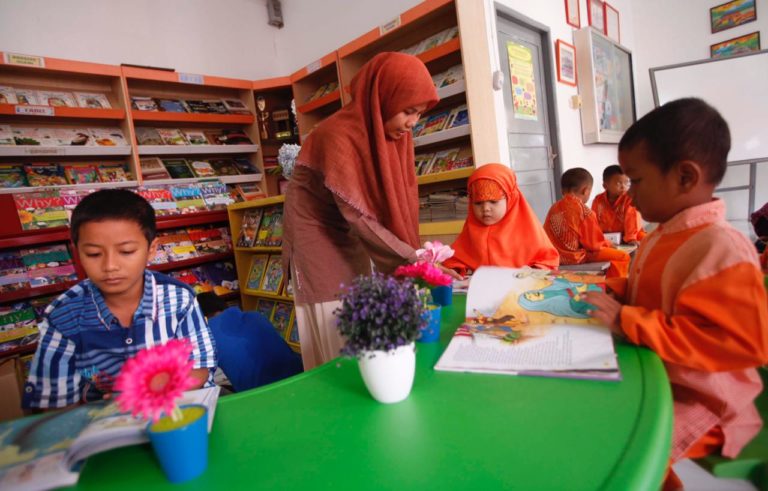Jakarta, MINA – Early childhood education expert, Dr. Sofia Hantanti MSi said intelligence and learning achievement of children in school is influenced by many things, ranging from education patterns, physical conditions, environment and adequate nutritional intake for children’s brain development.
“Intelligence is shaped by many factors including aspects of nutrition. “Children who lack nutrition, including DHA, will find it difficult to achieve at school,” said Sofia as a Dean of the Faculty of Education, Jakarta State University, Saturday.
Some nutrition experts from University of Indonesia, IPB, including Prof. Ahmad Sulaeman in an article published by the British Journal of Nutrition, said that there are 8 of 10 Indonesian children lack DHA intake if they refer to WHO standards.
The study, based on the 2013 Basic Health Research found that 8 out of 10 Indonesian school-aged children aged 4-12 years lack brain nutrition because of lack of essential fatty acid intake, especially DHA and Omega 3 intake compared to numbers reference from WHO.
Also Read: Kashmir University Holds Urdu Literature Seminar
Similar opinions were expressed by nutrition experts and General Chair of Pergizipangan Prof. Dr. Hardinsyah. Even Hardinsyah highlighted the lack of intake of essential fatty acids DHA can interfere with brain development and learning ability in children.
This situation is very concerning due to the fact that 80 percent of Indonesian children experience a lack of consumption of DHA and Omega 3.
“The effect of DHA deficiency on a child’s brain development can influence children’s reasoning (cognition),” Hardinsyah said.
According to Sofia, giving food that has good nutritional and vitamin values must be given by parents for children’s brain development. In addition, other stimulations needed are giving love and positive interactions with children.
Also Read: 76 Foreign Professors Collaborate Indonesia at WCP 2021
PISA research from the OECD in 2018 said that the mathematics and science skills of Indonesian students were at the bottom, ranked 62 in the world. This is of course a concern for the future of Indonesian children.
Meanwhile, the Ministry of Education and Culture’s research also stated that the power of Indonesian children’s thinking ability was still below developed countries in Asia like Korea and Japan even though the learning time of Indonesian children is longer than students in other countries.
“It is proper for parents and those who care about the achievements and future of Indonesian children to always care about fulfilling child nutrition including nutrition to help their brain development,” Sofia added. (TL/Sj/P2)
Mi’raj News Agency (MINA)











![Israeli tanks and APC’s gather by the Israeli – Lebanese border. Amid Israel’s escalating campaign against Hezbollah in Lebanon on September 30, 2024. [Erik Marmor/Getty Images]](https://en.minanews.net/wp-content/uploads/2024/10/IMG_20241001_203226-300x197.jpg)


















 Mina Indonesia
Mina Indonesia Mina Arabic
Mina Arabic